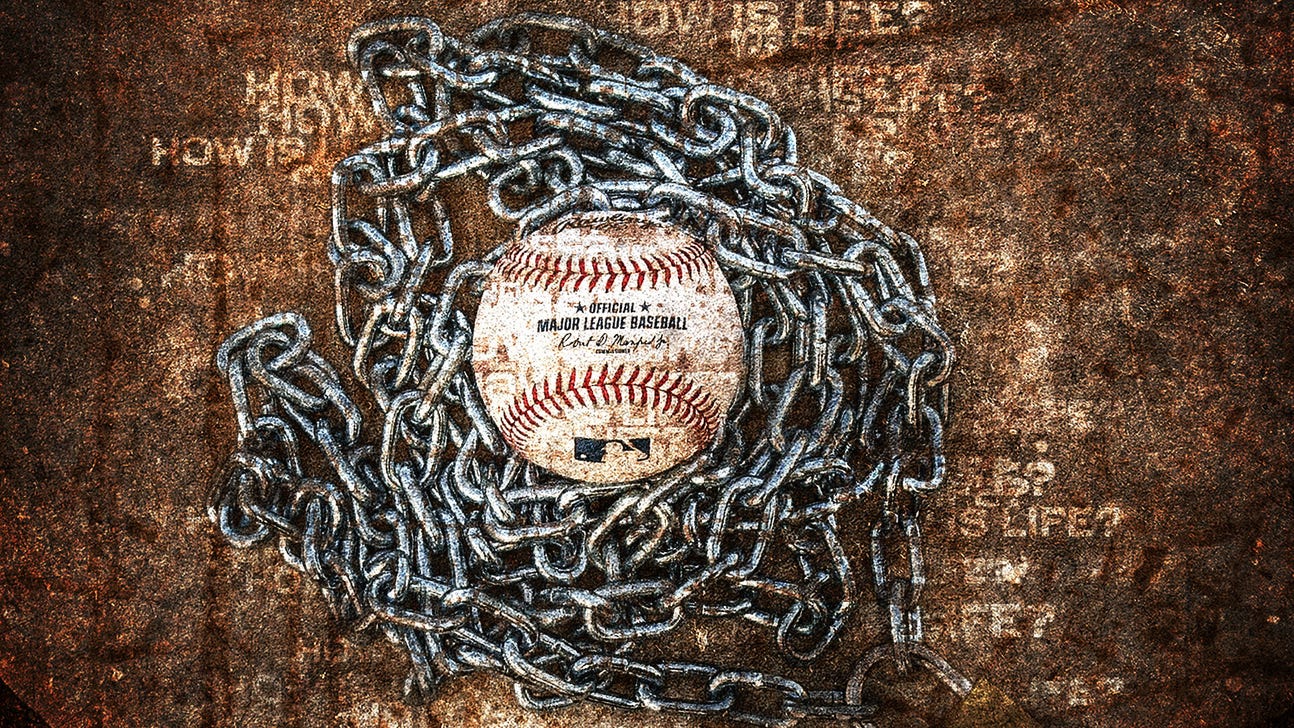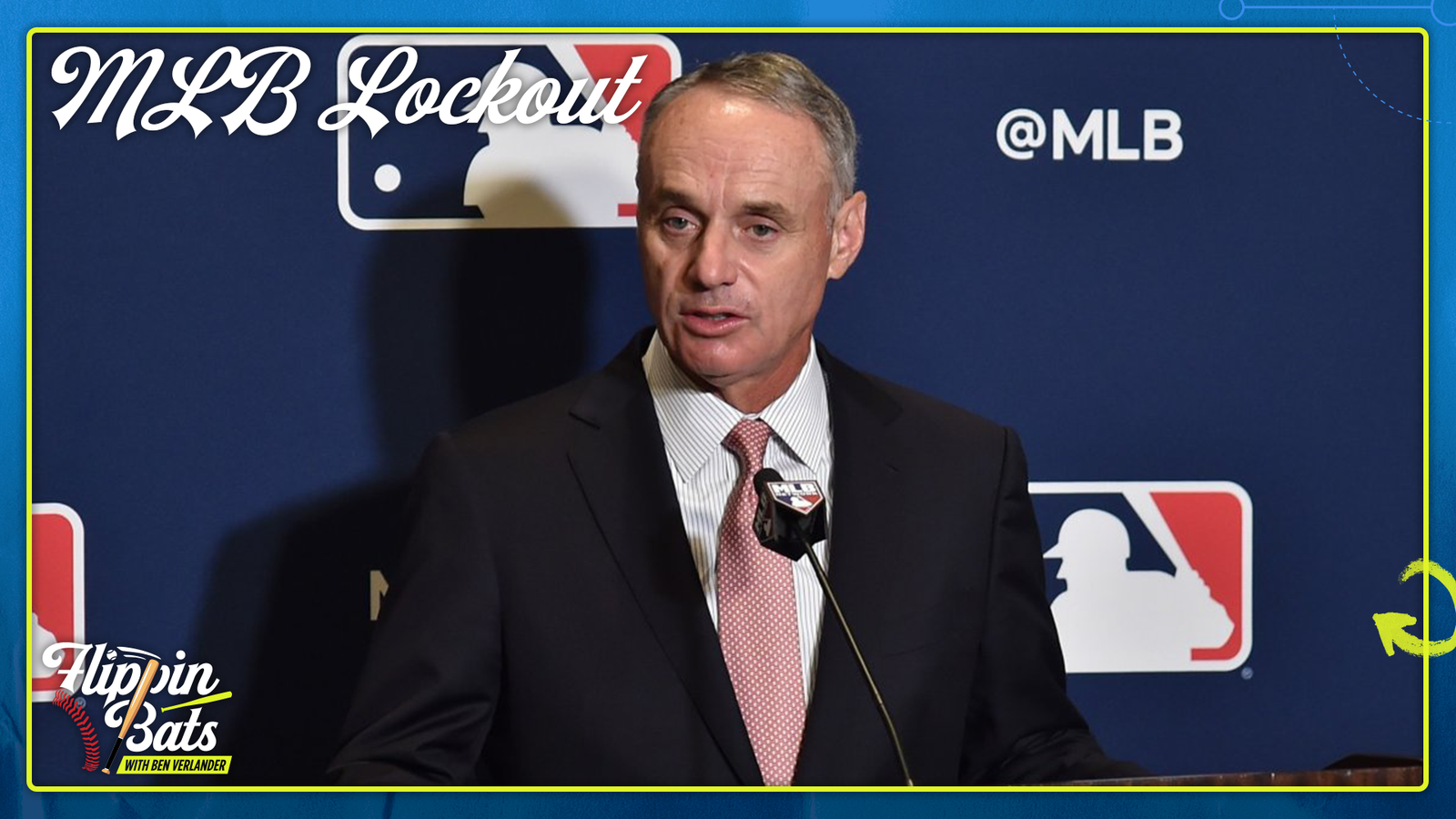
MLB lockout creating strange dynamic for players, teams
By Jake Mintz
FOX Sports MLB Writer
Lucas Giolito has known White Sox pitching coach Ethan Katz for more than a decade.
Katz was Giolito’s high school pitching coach. As Giolito developed into a big-league starter, Katz rose through the coaching ranks to eventually become Chicago’s major-league pitching coach before the 2021 season. They’ve grown up in the game together — colleagues on the field, genuine friends off of it.
But since the MLB lockout began on Dec. 2, the two haven’t spoken.

The relationship between White Sox right-hander Lucas Giolito and pitching coach Ethan Katz stretches back for more than a decade, but during the lockout, they're keeping their distance. (Photo by Ron Vesely/Getty Images)
"Ethan is like family to me. I’ve known him since I was 15 years old," Giolito told FOX Sports. "Beyond baseball, he is a very, very close friend of mine. He was at my wedding; I was at his. And I just think it’s strange and unfortunate that because of the lockout, he’s being told he’s not allowed to talk to me or any of the other guys."
This bizarre dynamic is playing out across the league. On the morning of Dec. 2, just hours after the old CBA expired, MLB clubs emailed memos to their employees with a set of rules and regulations for the lockout. These emails included a strict mandate to team employees forbidding them from interacting with 40-man roster players for the entirety of the lockout.
Players say they’ve received no such mandate from the union.
In a typical winter, communication between players and team employees tails off significantly compared to their daily workplace interactions in-season. Most big-leaguers spend their offseasons away from coaching and training staff, practicing either at home or at a performance facility close to where they live. But there’s still a consistent back-and-forth about matters such as a player’s health and offseason practice programming.
That isn't the case this year.
Giolito says he has reached out to Katz and other White Sox employees but has either received no response or been told by those colleagues that they’re not allowed to talk to players.
"I understand we’re dealing with the business side of things now, during the lockout," he said. "I just think it’s unfortunate that personal relationships need to suffer as a result."
Some MLB players, such as Braves pitcher Charlie Morton, haven’t even tried to chat with coaches or training staff out of fear of getting them in trouble. "I’m getting the impression," Morton told FOX Sports, "that I’m putting people in a precarious position if I try to reach out and speak with them."
The situation is particularly odd for Morton, who is rehabbing a broken leg suffered during Game 1 of the World Series. He was in correspondence with Braves medical personnel in November but hasn’t reached out or heard from any staff since the lockout. Instead, his personal physical therapist is acting as an intermediary between him and the team.
"Nothing would happen to me. I wouldn’t get in trouble [for reaching out], but I’ve gotten the sense they’re being told to not communicate with us," Morton said. "I’m also pretty sure I was told I’m not allowed to mail my X-ray disk to the Braves. It’s disappointing to me because we’re working toward the same goal. I like communicating with them."
Ben Verlander breaks down the MLB lockout and when we could see a resolution | Flippin' Bats
Yankees reliever Zack Britton, who underwent Tommy John surgery in September, is in a similar situation. He’s rehabbing his elbow at home in Texas and has not had any direct communication with his club since Dec. 2. But Britton says the no-contact policy is more inconvenient than restrictive for recovering players such as he and Morton.
"There’s so many resources nowadays, you don’t skip a beat doing what you need to do," he said. "Especially now that the [players’ association] has forged good relationships with so many high-end facilities."
Giolito echoed this sentiment: "We’re big-league baseball players. We know how to take care of ourselves."
But while MLB’s no-talk mandate won’t stunt skill development or hamper injury recovery, it has created an odd and uncomfortable situation for many players and employees across the league.
"If I wanted to reach out and talk about a day-to-day occurrence, about my life or my kids, even with someone working in another organization, I’m putting them at risk," Morton lamented. "If I ran into someone at the mall or the bus stop or the coffee shop, I’m putting them in a bad situation by trying to communicate with them."
Britton and his brother, Buck, who manages Baltimore’s Triple-A club in Norfolk, are in a supremely weird spot. As an MLB team employee, Buck is technically prohibited from contacting his brother, who is a 40-man roster player for the Yankees.
"We’ve joked that during Christmas, he’s got to stay on the other side of the room," Zack told FOX Sports.
To be clear, teams have differed in how strictly they’re choosing to uphold the mandate. Some have been lax, others stringent. It is Baseball Wedding Season after all, and there have been a number of player weddings in the weeks since the CBA expired, many of them attended by team employees.
Most clubs are aware of and OK with this level of interaction, as long as there isn’t direct discussion about the lockout. Go dance your heart out at your shortstop’s wedding. Just don’t be the dude talking everyone’s ear off about the luxury tax by the photo booth, OK?
The precise reason behind the mandate is foggy. Some around the game think the policy is in place to avoid any accusations of "direct dealing," which happens when employers attempt to circumvent a union by directly contacting employees about bargaining-related matters. However, direct dealing does not preclude employers and employees from all communication. It only restricts conversations about labor negotiations.
That means that under the letter of the law, team employees should be allowed to connect with players, but it seems unlikely that will happen before there’s a new CBA. And based on recent reports from The Athletic’s Evan Drellich, the two sides aren’t even set to meet about core economics until January.
Until then, things will stay distant.
"I just want to check in with people," Morton said. "But I feel like I’m putting them in a bad spot if I do that, which is a shame, especially this time of year. You just want to show people you care about them."
Jake Mintz is the louder half of @CespedesBBQ and a baseball writer for FOX Sports. He’s an Orioles fan living in New York City, and thus, he leads a lonely existence most Octobers. If he’s not watching baseball, he’s almost certainly riding his bike. You can follow him on Twitter @Jake_Mintz.











